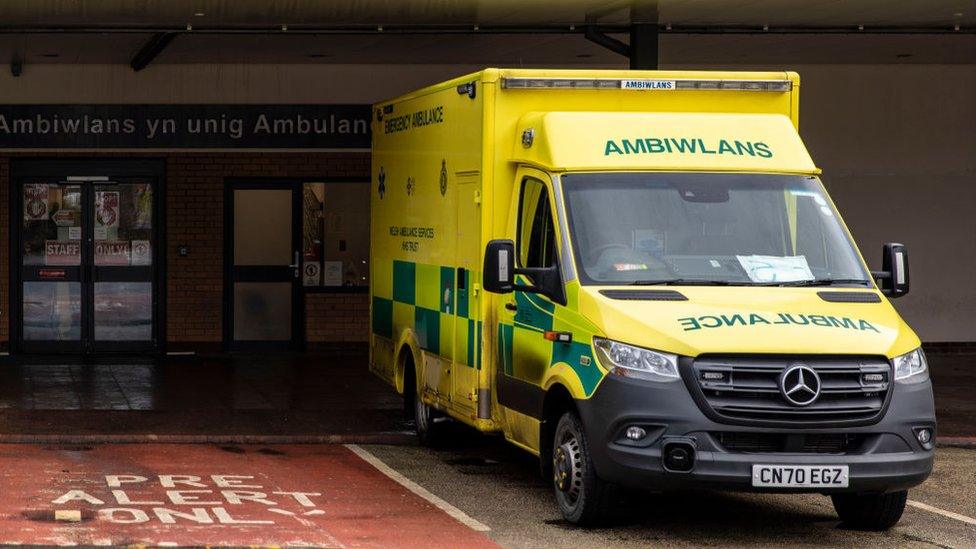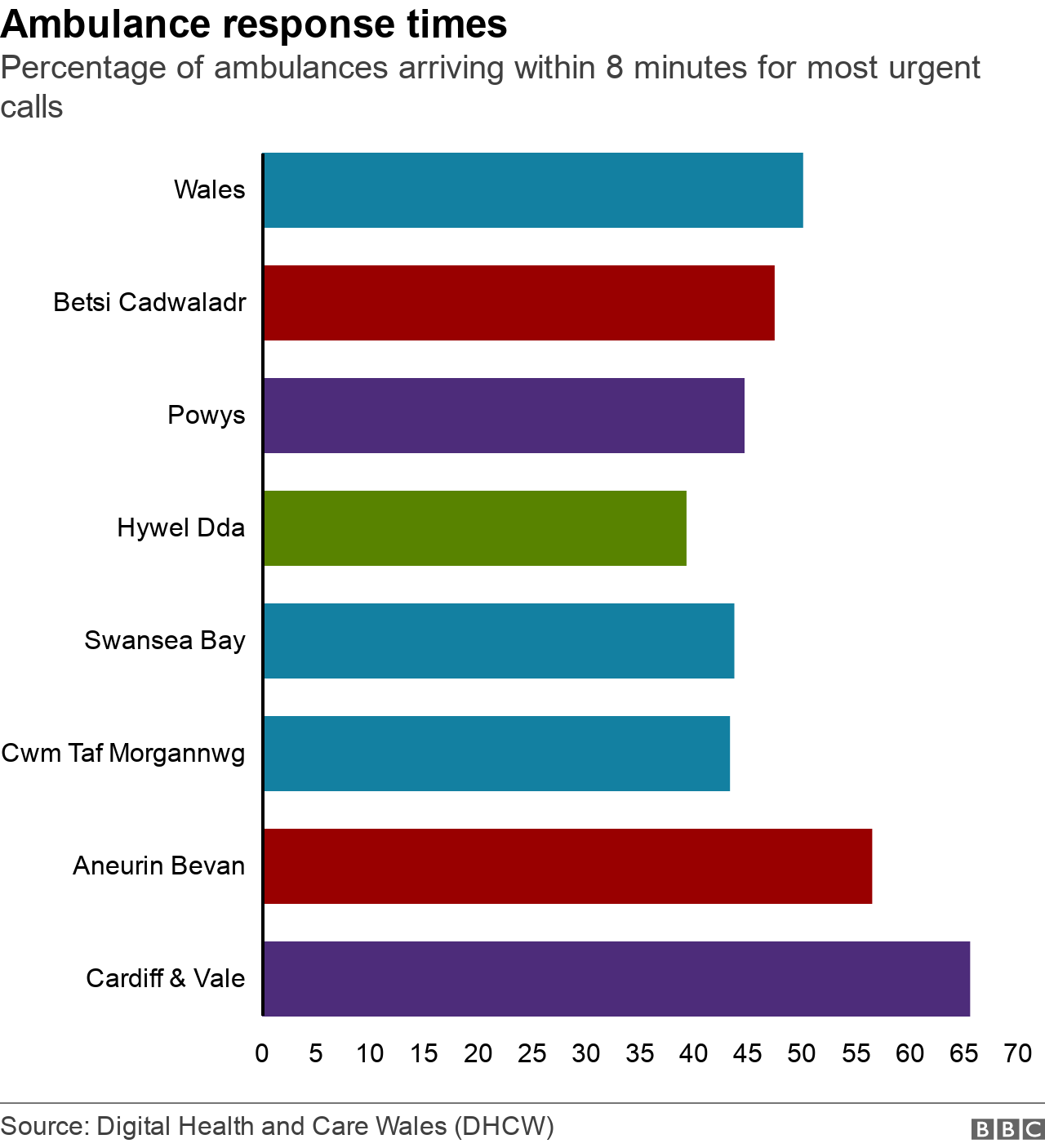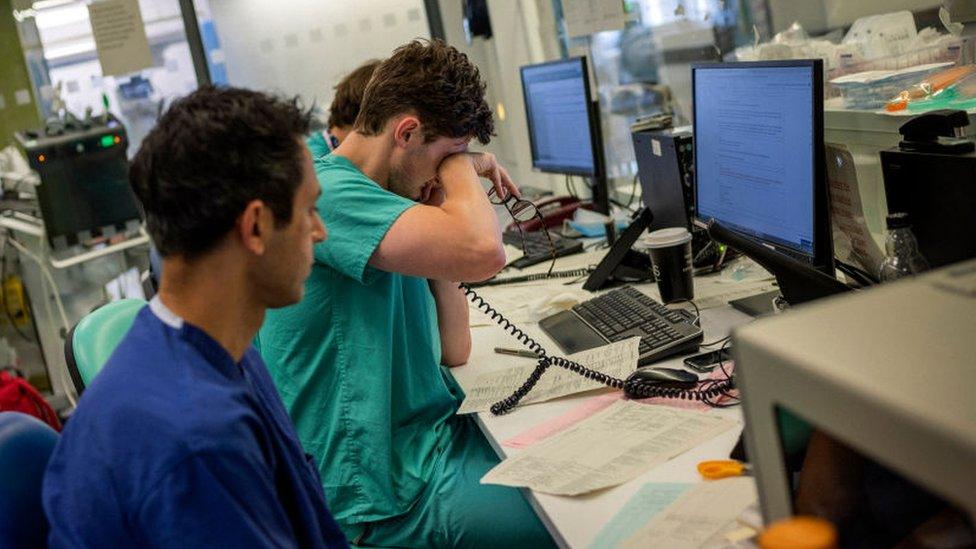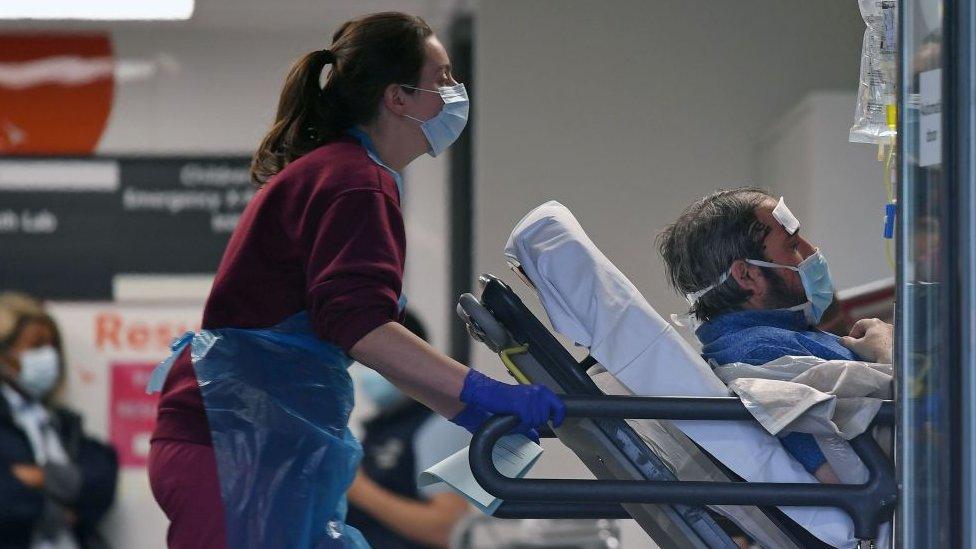Swansea: Ambulances used to care for hospital patients
- Published

The Welsh Ambulance Service scheme is in place in Morriston Hospital in Swansea
Three ambulances are being stationed at a Swansea hospital to care for patients and free up other paramedics.
Agency staff who man the stationary vehicles outside Morriston Hospital's emergency department do not go out on calls.
Instead they receive patients brought in by other ambulances, who are well enough to be transferred but face delays in being admitted.
The Welsh Ambulance Service (WAS) said it may be rolled out elsewhere.
The service said the initiative means other ambulance crews are then able to respond to the next emergency quicker.
The initiative at Morriston Hospital began on 15 November, and could also be put in place at the Grange Hospital in Cwmbran using St John Ambulance Cymru vehicles, according to the Local Democracy Reporting Service.
Lee Brooks, the service's director of operations, said the three fully-equipped ambulances could receive patients who could get one-to-one care by healthcare professionals.
"It means that our crews, if it's safe and clinically appropriate to do so, can transfer their patient to one of these vehicles and then be available to respond to another patient in the community," he said.
Mr Brooks also said that hospital handover delays remained "a serious and long-standing issue" affecting ambulance services across the UK.
He said long-term solutions were needed but that it would be "a dereliction of our duty" not to implement short-term ones like at Morriston Hospital as winter pressures intensified.
Wales recorded its worst ever performance figures by hospital emergency departments and the ambulance service in November.
The ambulance service responded to just half of immediately life-threatening calls within eight minutes.
This figure was even lower in the Swansea Bay University Health Board area, which covers Swansea and Neath Port Talbot.


WAS said it would recover the cost of the initiative, which could run until the end of March next year, from additional funding made available by the Welsh government.
A Swansea Bay University Health Board spokesman said it was "fully committed" to improve ambulance turnaround times.
"We are jointly working with WAS colleagues on a number of initiatives to facilitate more timely release of ambulances and mitigate the risk in the community," he said.
Swansea council's opposition leader, councillor Chris Holley, said ambulance handover delays happened every winter, and that more trained paramedics were needed.
Related topics
- Published18 November 2021

- Published13 October 2021
